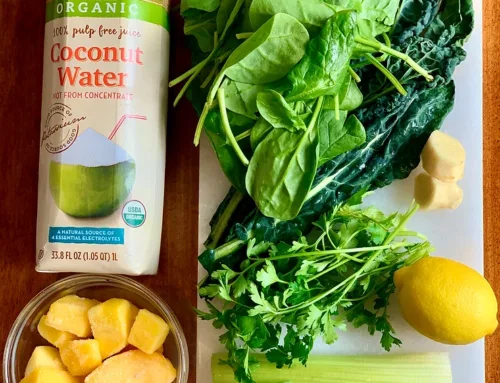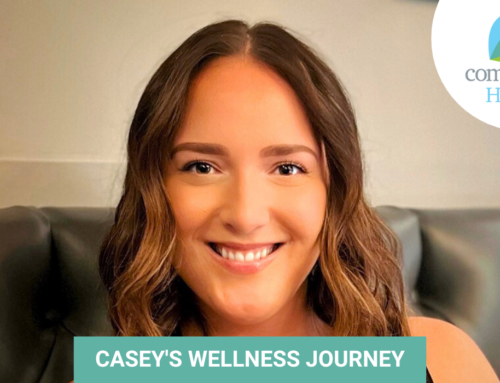
New Year’s Resolutions That Stick
Ah, New Year’s Resolutions. We have the best of intentions with creating health habits only to lose steam a few weeks later as life happens.
It’s like the Simpson’s episode when Homer tries to resist the forbidden donut. We’ve all been there.
Why is this?
Many assume it’s due to a lack of willpower. For instance, 75% of us wrongly think obesity is a problem with self-control.
In reality, it’s less about willpower and more about creating sustainable habit change.
Below are some tips for turning your New Year’s Resolutions into those long sought-after healthy habits. Whether you want to lose weight, drink less alcohol, stop smoking, or find a more fulfilling career, read on!
Tip #1: Set realistic goals.
One of the most important factors in achieving your goals is setting realistic ones from the get-go. As James Clear, author of Atomic Habits puts it, use the 2-minute rule when initially setting your goals because the benefits of healthy habits accrue over time like compound interest
Suppose you want to start exercising this year. Start small. Instead of setting the goal of running a marathon, set the goal to run 2 minutes every day. Once you form the daily habit, then you can begin to improve upon it running 3 minutes, 5 minutes, and building up over time. That leads us to tip #2.
Tip #2: Put new habits on autopilot.
According to USC psychology and business professor Wendy Wood, roughly 43% of our everyday actions are repetitive. In her book Good Habits, Bad Habits: The Science of Making Positive Changes that Stick, she recommends making healthy habits a routine part of your day to eliminate the mental struggle that so often accompanies new habit formation.
For example, if you’re constantly having to figure out when you’re going to fit that 2-minute run into your day, it’s less likely to happen. Instead, schedule it the same time every day. Consider exercising right after you wake up….before the day gets in your way and taps you of your resolve.
Tip #3: Get an accountability partner.
Another thing you can do to help form new habits is to make your goal public—tell your friends on Facebook, find an exercise buddy, or work with a health coach. Think about it: If you tell your best friend you’re going to meet her at 6 am to run on a wintry morning, you’re less likely to stay in your warm bed knowing she’s out there shivering waiting for you.
Tip #4: Use friction to your advantage.
Remove friction to create a healthy habit. If you want to exercise first thing every morning, sleep in your exercise clothes. Create a home gym to eliminate the commute and hunt for a parking space.
Introduce friction to break a bad habit. If you want to check your phone less often while you are working, put it another room. If you want to stop consuming gallons of ice cream, don’t keep any in the house.
Tip #5: Get curious.
According to psychiatrist Dr. Jud Brewer, you can gradually break bad habits by becoming more mindful of your behavior. Because the pre-frontal cortex goes offline in times of stress and/or strong emotion, Dr. Brewer encourages us to move from knowledge, which relies on our pre-frontal cortex, to wisdom, which relies on feeling, to disrupt cravings.
To break the trigger, behavior, reward cycle that often perpetuates bad habits, Dr. Brewer recommends we, “Notice the urge, get curious, notice the joy of letting go, and repeat.”
What does an enduring New Year’s Resolution look like?
You know you’ve successfully created a sustainable habit when returning to your old ways doesn’t feel right anymore. Carlos (aka Dr. Jorge) often uses brushing your teeth as an analogy: you’ll definitely miss that minty clean feeling if you skip a day.
Taking good care of yourself often entails making sustainable lifestyle changes. We’re here to support you on your journey to optimal health. We serve the whole person to help ensure your body is getting proper nutrition, supplementation, movement, rest, and relaxation.
Interested in working with an accountability partner who is committed to your success? Schedule a free consultation today to learn more.
—————————————————————————————————
Sources:
“Creatures of Habit,” The Hidden Brain podcast with Wendy Wood USC psychology and business professor and author of Good Habits, Bad Habits: The Science of Making Positive Changes that Stick
“The Right Way to Form New Habits,” HBR Ideacast with James Clear, author of Atomic Habits
“A Simple Way to Break a Bad Habit,” A TED Talk with Dr. Judson Brewer
This is for general informational purposes only and does not constitute any practice of medicine or professional health care services of any type. The use of information on this blog is at the user’s own risk. The content of this blog is not intended to be a substitute for professional medical advice, for diagnosis, or for treatment. Please seek the care of your health care professionals for any questions or concerns.



